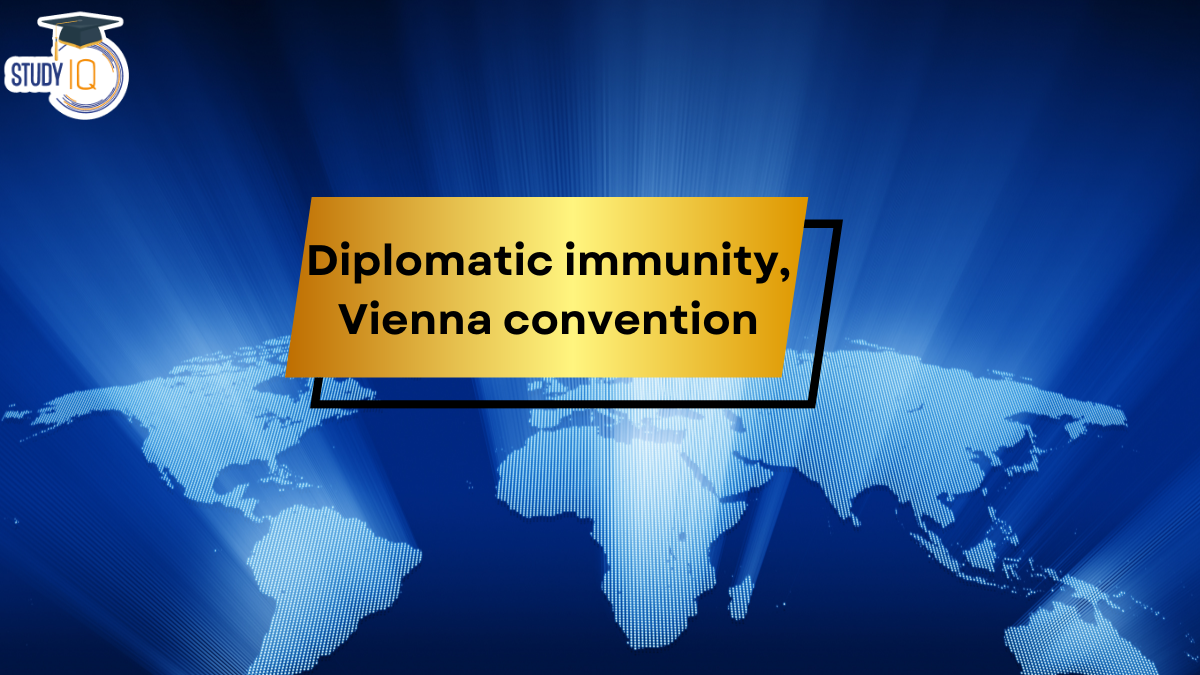What is Diplomatic Immunity?
- Diplomatic immunity is a principle of international law that protects foreign government officials from the jurisdiction of local authorities and courts.
- It protects diplomats, their families and their property while they are on diplomatic assignment.
- It allows diplomats to carry out their work without hindrance.
- It protects them from prosecution, arrest, and other legal proceedings in the country they are working in.
- Diplomats also do not have to pay taxes in the country they are working in.
- Diplomatic immunity does not prevent the host country from expelling the diplomat.
| Vienna Convention on Diplomatic Relations, 1961 |
Important Articles
|


 India’s Road Safety Crisis: Engineerin...
India’s Road Safety Crisis: Engineerin...
 A Decade of Startup India: Transforming ...
A Decade of Startup India: Transforming ...
 Berkeley Earth Annual Temperature Report...
Berkeley Earth Annual Temperature Report...

























